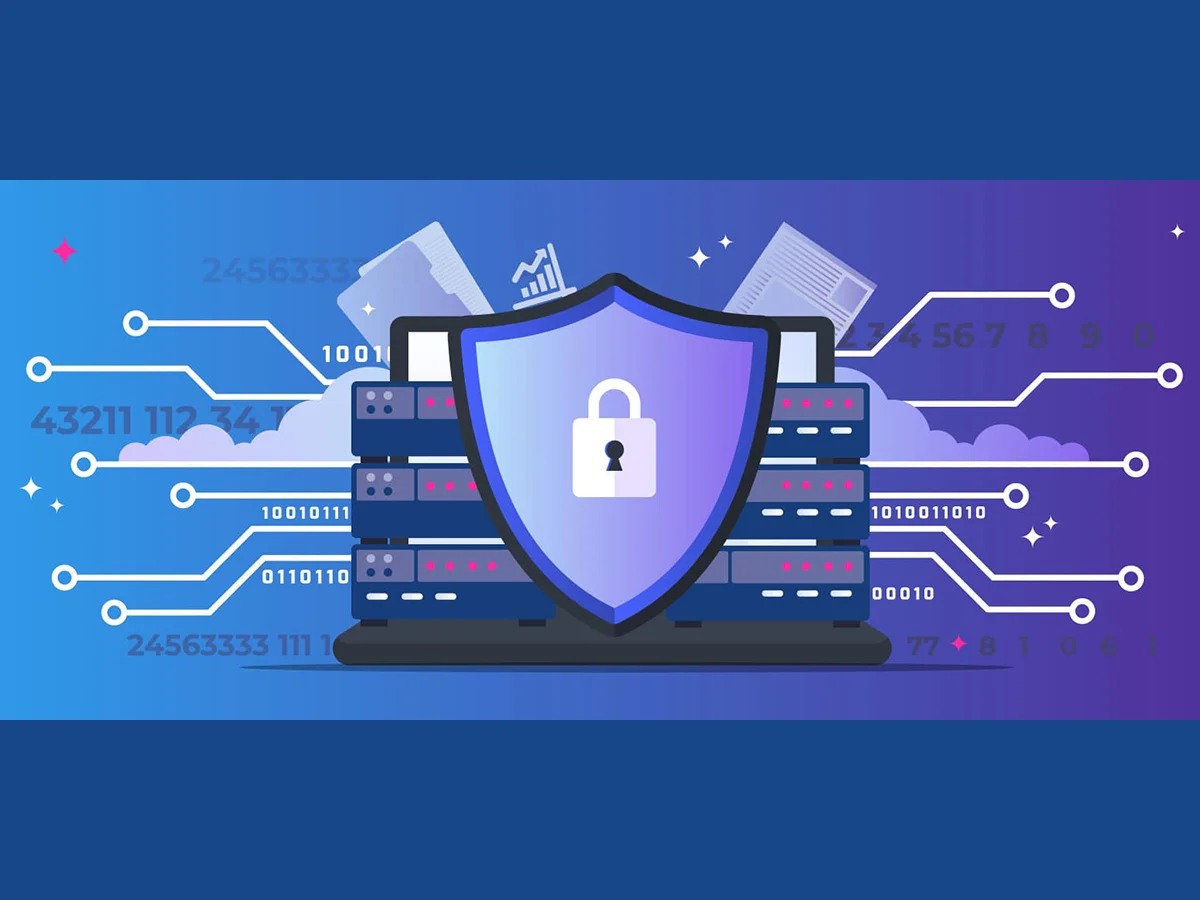Jan 3, 2023

Can blockchain be implemented to secure the big data?
In this article, we will explore how blockchain technology can be used to secure big data.
Blockchain has become a popular term in the world of technology and is quickly becoming a key component of many data security systems. The purpose of a blockchain is to create an immutable ledger that records all transactions or data points within a network. This ledger is shared among all members of the network, and provides trust by ensuring no single entity can alter the records without everyone else's consent.
When it comes to securing big data, one key advantage that blockchain offers over traditional methods is its ability to allow for distributed storage and processing of large datasets. By distributing these datasets across multiple nodes on the network, each node can independently verify and validate any changes made to the data, eliminating the risk of a single point of failure. Additionally, blockchain networks are highly secure and encrypted, making it difficult for an unauthorized user to access any sensitive or confidential information stored on the network.
Here are the top 10 Advantages:
- Enhanced Security: Blockchain technology is designed to be highly secure and tamper-proof, making it difficult for attackers to access data stored on the network.
- Improved Data Quality: By leveraging distributed ledgers, blockchain networks can validate the accuracy of data collected across the network. This helps ensure that only high quality data is stored and accessible.
- Increased Transparency and Traceability: Transactions recorded on a blockchain are immutable and traceable, allowing organizations to easily audit their systems and reduce fraud or errors in their records.
- Reduced Costs: Since blockchain transactions are automated, they are often cheaper than manual processes which require middlemen or intermediaries that add costs to each transaction
- Faster Transactions: Blockchain-based transactions are usually processed much faster than traditional methods, allowing organizations to reduce time delays and speed up processes.
- Enhanced Privacy: Blockchain networks can use strong encryption protocols to protect sensitive data stored on the network from being exposed or stolen.
- Improved Scalability: Since blockchain technology is based on decentralized networks, it can easily scale to meet the demands of a growing organization with minimal effort
- Increased Efficiency: By replacing manual processes with automated ones, businesses can streamline their operations and improve efficiency across the board.
- Reduced Risk of Fraud: The immutable ledger system of blockchains makes it virtually impossible for anyone to tamper with or alter data without everyone else’s consent, reducing the risk of fraud.
- Improved Accessibility: Blockchain networks are open source and can be accessed from anywhere, providing companies with a more convenient way to manage their operations.
What are some of the challenges that need to be overcome before blockchain can be effectively implemented for securing big data?
- Scalability: Blockchain technology is still in its infancy and may not be able to handle an influx of large datasets.
- Lack of Standardization: There are currently no industry-wide standards for blockchain networks, making it difficult for organizations to implement uniform systems across the board.
- Integration with Existing Systems: Companies need to overcome technical challenges related to data integration between their existing systems and any new blockchain networks they create.
- Security Risks: While blockchains are secure, there is always the potential risk that attackers could find ways to exploit vulnerable areas on the network.
- Cost Considerations: Organizations must consider the cost associated with implementing a blockchain system and maintain it ongoing.
- Regulatory Compliance: Companies must ensure that any blockchain networks they create comply with applicable laws and regulations.
- Talent Retention: Businesses need to retain experienced blockchain personnel in order to successfully manage their networks and ensure that they remain secure over time.
- User Adoption: Organizations may have difficulty getting users to adopt and use a new blockchain-based platform, especially if it requires them to change their existing habits or processes.
- Data Privacy: As data stored on blockchains is transparent, organizations must take steps to protect the privacy of any sensitive information stored on the network.
- Network Latency Issues: Blockchains are usually slower than traditional databases due to the complexity of verifying transactions across the network, which can cause latency issues for users.
- Storage Limitations: Blockchains are limited in terms of the amount of data that can be stored on them due to their decentralized nature.
- Performance Issues: Companies must ensure that any blockchain-based systems they create perform optimally by monitoring and troubleshooting any performance issues in a timely manner.
- Compatibility of Smart Contracts: As smart contracts are not compatible with all programming languages, organizations may need to invest in additional development resources to deploy them effectively on their networks.
- The complexity of Development: Developing complex applications or integrations with existing systems on blockchains requires considerable technical expertise and resources.
Best
Discover the best practices of building best product experience from millions of ready-made product graphs or build one yourself.

Intelligent
In-depth intelligence of products in the form of product stories help in achieving quality, automation and efficiency in new and existing product implementations.

Augmented
Improve and augment end to end product selection, development, integration, and operation with detailed information and AI copilots.


